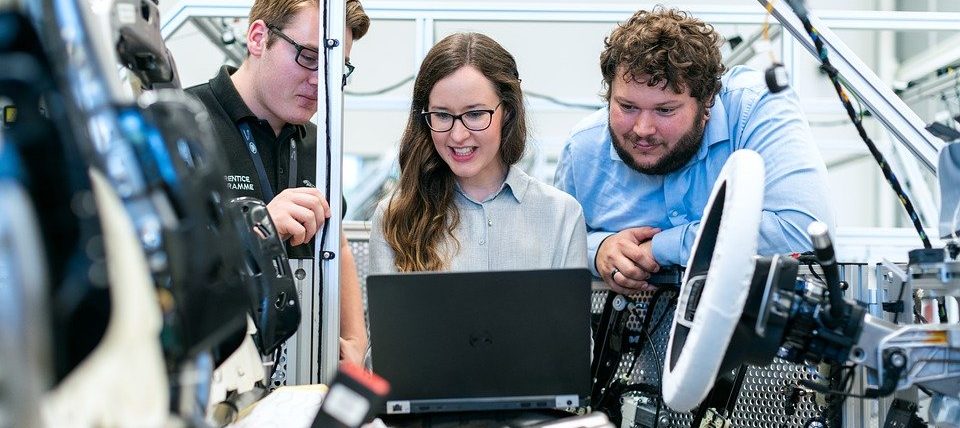On a backdrop of labour market demands for technically skilled workers with practical work experience, the Flemish government has set up a legal framework baptized “dual learning” (Duaal leren).
Recent numbers shows that this form of educational training is on a rise for success.
“Dual learning” is an integrated pathway in highschool education, where general education, vocational training and work experience are brought together. Young people acquire the skills that they need to obtain a qualification in both the workplace as well as at school. The learning pathway thus consists of a teaching and work component that are coordinated and together form a coherent whole. This offers both for the businesses as for the concerned pupils many advantages. For example, these businesses can find potential employees, the learning culture within the participating undertaking is strengthened, it is possible to respond to changing needs, competences are reinforced,….. There are also financial incentives that a company can fall back on if it trains apprentices in dual education, including the target group reduction mentoring (‘doelgroepvermindering mentor’).
Both natural persons and legal entities under private and public law are eligible to train an apprentice with a contract for the execution of an alternating education.
The participating business must have been accepted by the Flemish Partnership for Dual Learning.
In order to be permitted as a workplace educational provider, the company must meet at least a number of qualifications, respecting both the undertaking as well as the mentor accompanying the pupil. The undertaking’s conditions relate to the organization and the equipment that will enable the apprentices to be trained on the job in accordance with the training plan and the financial strength. The mentor on the other hand must have a record of good standing, must have reached at least 25 years of age, must show least 5 years of practical experience in the profession and must be trained as a mentor.
A business must apply for a permit to commence each training course for which it wishes to conclude a contract with alternating education and for each undertaking where it wishes to offer on the job training to apprentices. The recognition procedure can be initiated through the submission of an application in the digital portal app.werkplekduaal.be.
If the apprentice will be trained on the job for an annual average of at least 20 hours per week, a contract for alternating education (‘overeenkomst voor alternerende opleiding’) will be closed between the business, the apprentice and the school. If the apprentice will have an average of less than 20 hours per week of on the job learing, an internship contract alternating education (‘stageovereenkomat alternerende opleiding’) must be concluded. In exceptional circumstances, a part-time employment contract or a part-time employment contract social maribel may also be concluded. The parties to this contract will be the company and the apprentice.
Conclusion: Because of the Flemish decree respecting dual learing, businesses are much better placed to attract young talent for on the job learning and resolve over the years the ambient lack of skilled specialist and technical workers.








